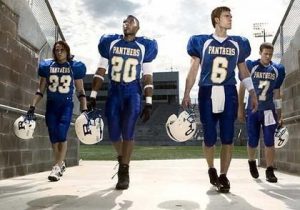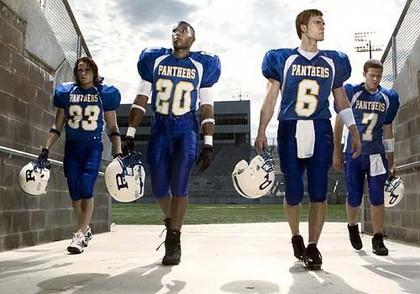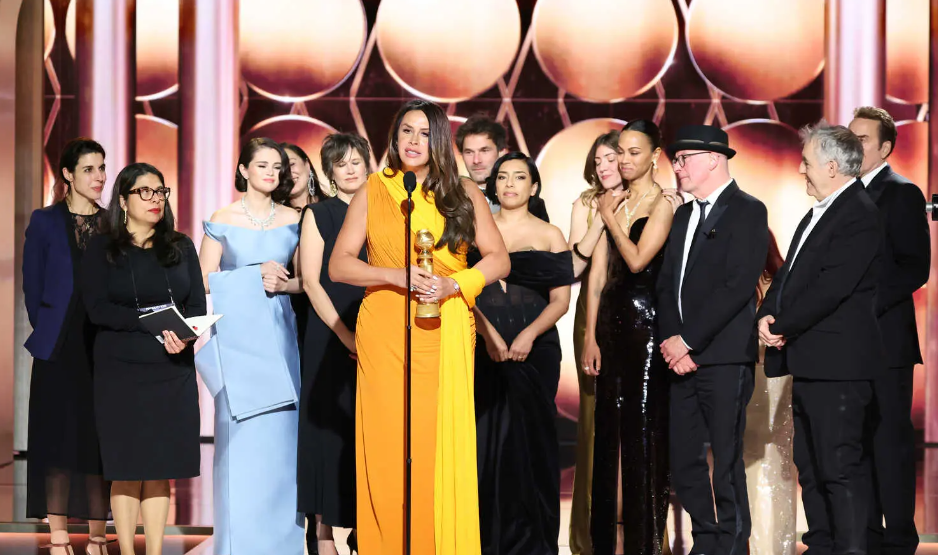
On July 15 of 2011, my five year long romance with NBC’s”Friday Night Lights” came to a bittersweet end. Since its debut in 2006, Peter Berg’s television adaptation of H.G. Bissinger’s classic book has been a staple of my own Friday nights (or my DVR). Mainly due to its odd and often absurd plot, our relationship has deteriorated somewhat since FNL’s flawless debut season, but I still love it. But all the turbulence in the world could not adulterate my unwavering dedication to television’s most entertaining sports show.
I have devoted roughly 80 hours of my life to Coach Eric Taylor, who was played to perfection for the duration of the series by Kyle Chandler. In fact, there has been multiple instances in which I may have actually believed Eric Taylor was a real person. As pathetic and delusional as that is, this fact also speaks volumes about Berg’s character development ability. Coach Taylor is the definition of a man’s man, role model, and leader. Chandler, who has received Emmy nominations for his work on FNL, is the driving force behind its success. Honestly, I have never seen anyone portray their emotions through facial expressions as well as Chandler and his often stoic character.
Alongside Chandler for the entire series was Connie Britton, who played the role of Tami Taylor, a guidance counselor and the often conflicted wife of Coach Taylor. The chemistry of this on-screen duo awed viewers for the past five years due to the authentic element of their marriage. This genuine feeling is anchored by the fact that the Taylors are not the “perfect family”, yet their devotion to each other led to a countless number of compromises for the betterment of their marriage. This is exemplified in the series finale, as Coach Taylor decides to turn down the offer of a lifetime to move his family to Philadelphia, where Tami will be taking over as dean of admissions at a prestigious college.
However, as I previously stated, it is impossible to love everything about FNL. Case and point, Julie Taylor, the over emotional daughter of Eric and Tami, who is annoying to a point where I can’t help but respect Aimee Teegarden’s acting prowess. In the fifth and final season, Julie’s personality in general is nothing short of infuriating. During her first semester at college, Julie engages in an affair with a married Teacher’s Assistant (first mistake) and then proceeds to flee school in embarrassment (second mistake). Oh wait, I forgot intentionally driving her car into a stone wall (third mistake). The way I see, once boyfriend and quarterback Matt Saracen went off to college, Julie could have afforded to lose substantial screen time.
FNL’s writing staff should be credited for their work on the series finale, by far the best episode of the season. By including the characters with whom we all fell in love with 5 long years ago, they basically assured at least one movie offer (Although it would be awkward sharing a movie title). Who knows, perhaps they will change the title to “Clear Eyes, Full Hearts” or “Texas Forever”, the two iconic phrases of NBC’s hit (as you can tell, I have been hoping for a movie for quite some time).
If you are reading diligently, you have most likely noticed that I have yet to mention any substantial plot points of the series. The reasoning behind this: it would be absolutely impossible to cram even the most important plot twists from FNL into one article (and I do not feel like sitting here all summer writing). Despite masterfully extending a one season blueprint into a five season marathon, FNL’s talented writers did one thing that truly got under my skin. The inconsistencies in the characters’ ages was hard to ignore. How could one be so oblivious not to realize that Landry spent five years in high school? Or that Tim Riggins was a senior during the first season and once again a senior two years later? Or how about season five’s complete exclusion of J.D. McCoy, the major antagonist of season three? The answer to these questions lies in the fact that “Friday Night Lights” was originally scripted and adapted as a one season experiment as opposed to a five year network TV show. So yes, the writers at times showed inconsistencies and frequently ventured into the soap opera realm (season two’s murder and Tim Riggins going to prison), but the ability to prolong the series for five seasons is undeniably impressive.
To put it simply, the most fitting figure to describe FNL is that of a parabola. Season one was television genius, followed by three mediocrity-ridden seasons. However, FNL’s final season, with its football centered plot, is joyfully reminiscent of its debut season. Furthermore, the series finale could not have wrapped up the lives of FNL’s characters more skillfully. As cheesy as it may sound, the Lions winning state on a hail mary was one the greatest scenes ever aired on FNL mainly due to the fact that the screen faded before the result of Vince Howard’s 70 yard bomb was revealed. Perhaps even more predictable, yet just as effective, was the impending marriage of Matt and Julie that was announced in the finale. As much as one could see it coming, this “fairy tale” ending could not have been more satisfying.
However, not every character is given a happy ending, as the writers avoid falling into some kind of cheesy, joyous trap. Despite winning state and taking over at quarterback for the West Dillon super team, Vince is torn apart from girlfriend Jess Merriweather (Jurnee Smollett) when her family moves to Dallas. Similarly running back Luke Cafferty (Matt Lauria) is shown boarding a bus en route to military training, as opposed to fulfilling his lifelong ambition of playing college football. Viewers across the nation could not help but find these unfortunate occurrences to be refreshing in contrast to the many happy endings portrayed in the finale.
Although its finale was an immense surplus of satisfaction, seeing “Friday Night Lights” go has triggered an internal conflict within me. I knew going into this episode that no matter what actually took place over the course of the finale, I would be angry when it ended. Peter Berg and the FNL writers could not have done a better job in consummating the futures of the characters who captured the hearts of so many. And to be honest, FNL fans should salute Berg for successfully concluding this beloved series in the best manner possible.









James Cullinane • Jul 23, 2011 at 9:27 am
Thanks for the feedback Brett. I suppose my assumption that Landry would naturally be in the same grade as the best friend he went through life together was somewhat groundless(just what i always thought). Same thing with Riggins, a supposed sophomore, being best friends with a senior captain in Jason Street…it just seems like ages were altered to prolong the series.
Brett • Jul 17, 2011 at 11:34 am
Seasons 3 and 4 mediocre? No way. Every season except 2 was brilliant. Also, I always see Peter Berg getting so much credit, and he should for creating the show in the first place. But besides writing and directing the pilot and directing the season 4 premiere, he had nothing to do with the show. More credit should be given to Jason Katims, who was the showrunner for all five seasons and wrote the finale.
“How could one be so oblivious not to realizes that Landry spent five years in high school?”
Landry was in high school for four years, seasons 1-4. Season 5 he was in college.
“Or that Tim Riggins was a senior during the first season and once again a senior two years later?”
I agree that Riggins probably shouldn’t have been a senior in the third season, but it was never made clear what year he was in the first season.